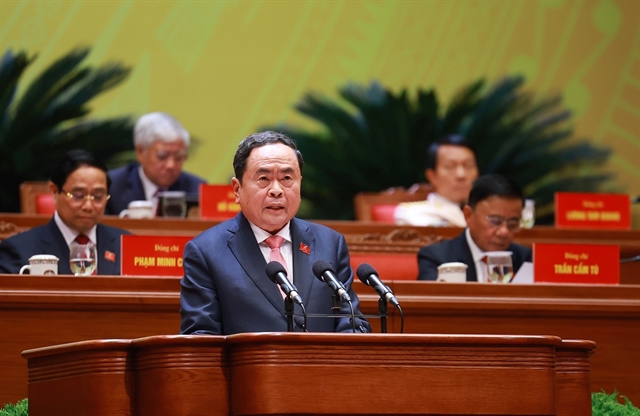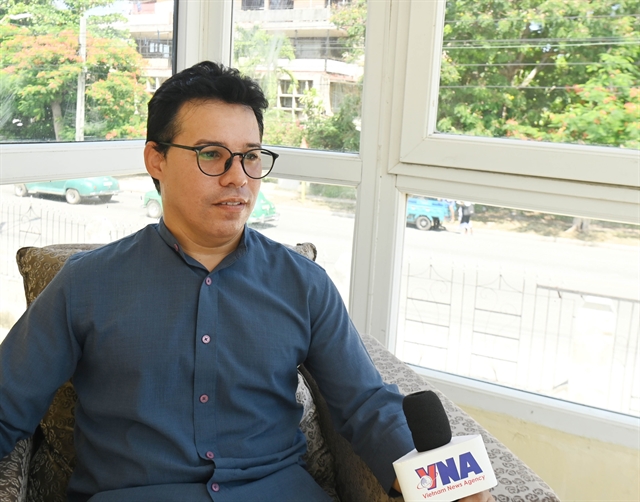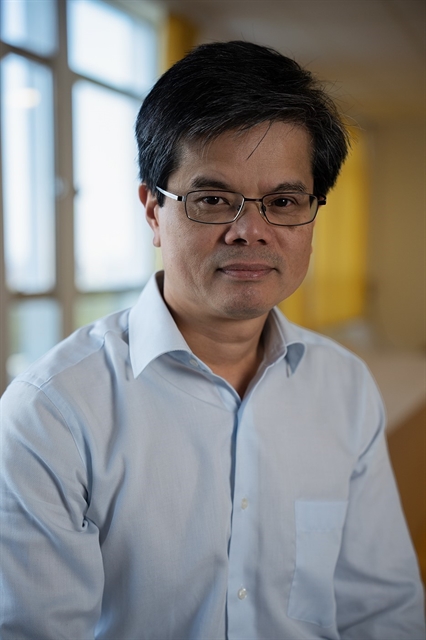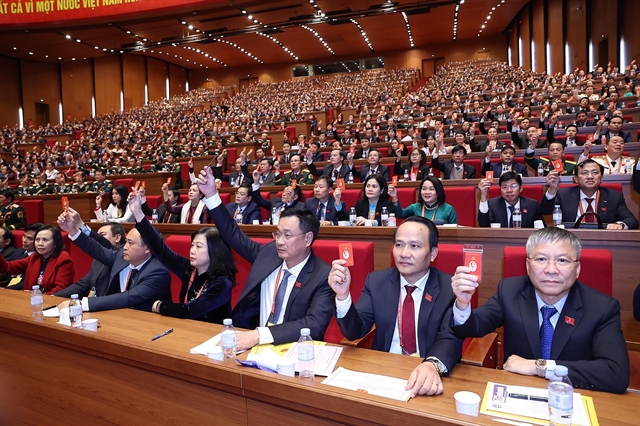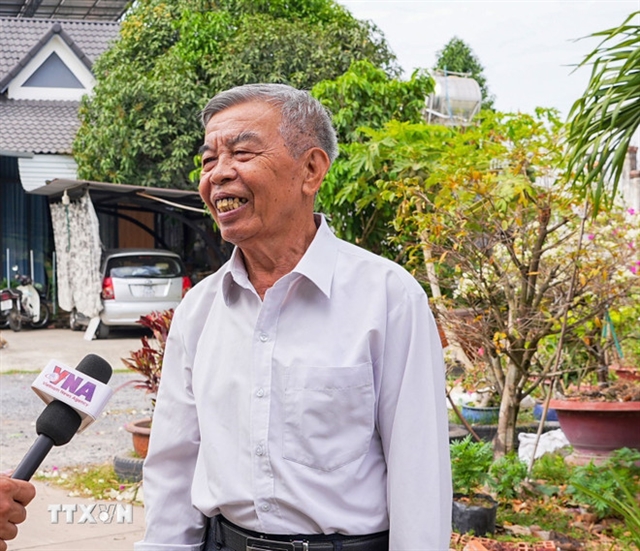 Society
Society
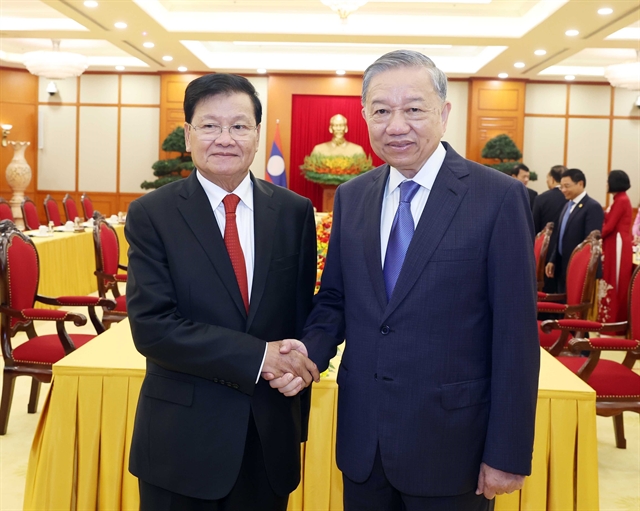
Since Phạm Thị Bạch Ngọc, who is majoring in English at the HCM City Open University, plans to go to a European country for a master’s degree, she applied for a professional bachelor’s degree in international trade.
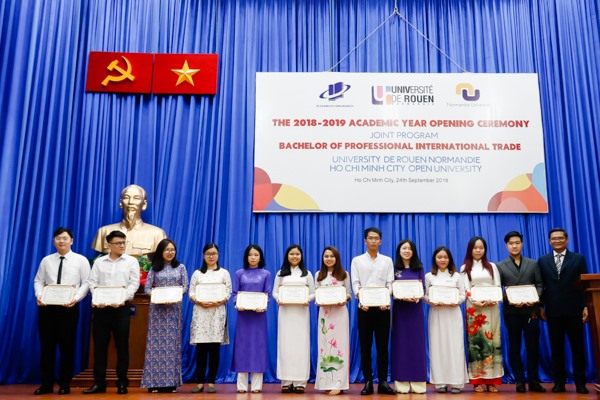 |
| Students of the professional bachelor’s degree in international trade, a joint programme between the HCM City Open University and University De Rouen Normandie in France. — Photo Courtesy of the HCM City Open University |
Gia Lộc
HCM CITY— Since Phạm Thị Bạch Ngọc, who is majoring in English at the HCM City Open University, plans to go to a European country for a master’s degree, she applied for a professional bachelor’s degree in international trade.
That is a joint programme between the open university and France’s University De Rouen Normandie.
The programme would be a “stepping stone for me to study for a master’s degree in European countries,” Ngọc said.
According to the HCM City Open University, students of the programme like her stand a better chance to get a scholarship for a master’s degree.
Ngọc said it would help her become a “global citizen” as she wants to.
Assoc Prof Dr Nguyễn Minh Hà, the university’s vice rector, said: “Many universities in the country follow the trend of global integration through many different programmes including co-operation with foreign universities for training.”
He said Vietnamese universities get many benefits from international joint programmes: Their lecturers’ capacity is improved, enabling them to teach advanced programmes in English whilst training programmes are updated based on international standards and university managers get international experience and develop themselves.
These elements in turn help the universities get international accreditation for quality, which is one of ways to attract Vietnamese and foreign students in future, Hà said.
“When Vietnamese universities’ training quality is recognised by foreign universities, students can easily move to the latter for studying and getting international degrees.”
International degrees would help graduates compete on the global stage in this era of integration, he said.
Joint programmes are cheaper for students than studying abroad, he pointed out.
“The joint programme for a professional bachelor’s degree in international trade, for instance, offers advantages such as a globally recognised degree, low tuition fee and short nature of the course.”
As students of the joint programmes, they learn everything in English, an advantage in the labour market after they finish, he said.
Many job recruitment companies complain that Vietnamese graduates and workers are not proficient in English, saying it is something that many companies require.
Hà said that his university also collaborates with Université Libre de Bruxelles in Belgium, Australia’s Federation University, University of Southern Queensland and Flinders University, and Germany’s Berlin School of Economics and Law to offer master’s and bachelor’s degrees.
“It is very important universities ensure the quality of joint programmes [if they want] to exist for long and attract students.”
The Ministry of Education and Training has rolled out a number of policies to encourage universities, colleges and other educational institutions to strengthen co-operation with counterparts around the world.
In its instructions for the 2018-19 academic year it continues to insist that universities should proactively increase the number of training programmes in foreign languages, especially English.
It wants them to tie up with reputed foreign universities to have their degrees recognised and their students accepted by the latter.
According to the ministry’s Department of International Education Co-operation, universities in the country have tie-ups with more than 200 counterparts from 30 countries and territories and more than 500 joint programmes.
These joint programmes are of various kinds, allowing students to study entirely in Việt Nam or a part of the time in Việt Nam and the rest abroad. They could be taught the foreign partner’s curriculum or one created jointly by the partners.
The department said the joint programmes have provided the country with skilled human resources and hastened its global integration.
According to the HCM City University of Economics, foreign curriculums have helped improve its training quality and get international accreditation to improve its position in Asia.
Since 2015 the university has sent nearly 400 of its students to partner universities to study and intern, while nearly 1,500 international students have come to study in it. — VNS

